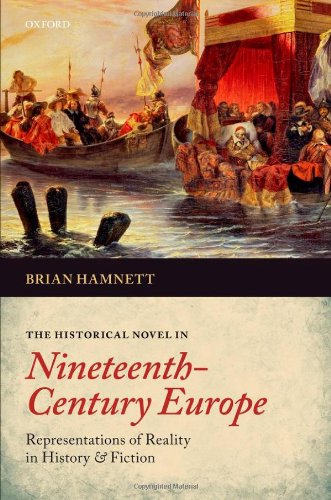The Historical Novel in Nineteenth-Century Europe: Representations of Reality in History and Fiction
Hamnett sets himself two major tasks. The first might be more intriguing to the casual reader: to explain why the historical novel, initially so acclaimed, had lost its prestige as a literary form by the mid-19th century. Its parallel development to professional historiography gradually meant that historical novelists could not match the historians for sheer scholarship. Soon, practitioners of both forms grew increasingly uncomfortable with how historical fiction blurred two incompatible modes of representing reality (i.e., fact and fiction). Historical novelists also had difficulty keeping current with new novelistic techniques and the increasing emphasis on psychology over plot – Eliot’s Romula and Flaubert’s Salammbo represent two experiments that failed to incorporate the new literary developments.
Hamnett’s second task is more problematic – upholding the “literariness” of the genre by carefully distinguishing between serious and non-serious historical fiction. On one hand, the genre laudably discovers “truths concerning the human situation in time” while portraying “human consciousness of broader social movements through fictional techniques” (13). On the other hand, by strictly equating the “serious” to the “literary,” Hamnett systematically excludes the bulk of popular historical fiction – certainly an important vehicle for conditioning historical understanding and consciousness of society in time. Worse, literariness in a historical novel basically becomes an evanescent quality. When the “issues prevailing at particular moments in the history of specific societies” pass, the intrinsic instabilities of the form become exposed (307), and the individual novel becomes dated. All in all, however, Hamnett’s reflections on the beginnings of the genre, and his account of the mutual development of historical fiction and academic history, are perhaps the best on the topic. His work is a boon for academic and non-academic readers alike.










